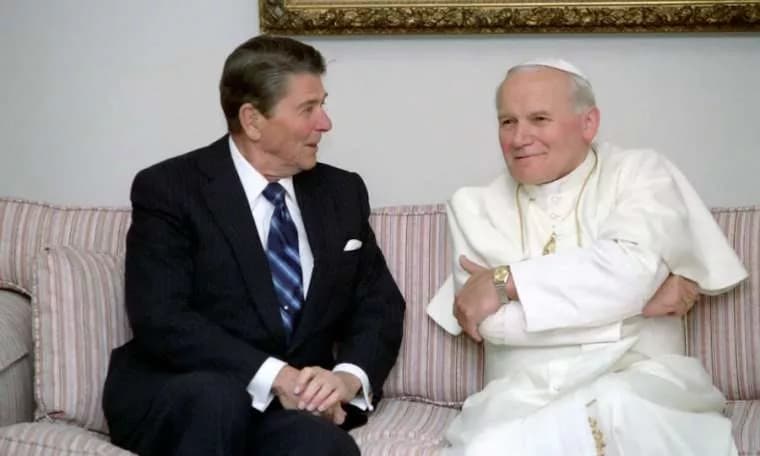
By John L. Allen Jr.
ROME – With the imminent departure of Joseph Donnelly as the U.S. Ambassador to the Holy See, it seems likely the post will be vacant for a while. It would make little sense to try to ram through a nominee before the election in November, and afterwards it can take a new (or returning) administration six months, or more, to work its way down to the Vatican gig on the list of federal jobs to fill.
As a result, we have a cesura, a pregnant pause, which could provide a moment to rethink America’s approach to whom it sends as its envoy to the Vatican.
I’m going to lay out here a modest proposal I’ve been floating periodically for the better part of two decades, in the serene confidence that it’s no more likely to be taken up now than at any other point over that span. The fact I can’t get anyone to listen, however, doesn’t, ipso facto, make me wrong.
Both elements of this modest proposal are intended to expand the talent pool, as well as privileging competence and preparation over politics. To wit, I suggest the United States break with what have been two unquestioned assumptions about the position since full diplomatic relations were first launched under President Ronald Reagan in 1984:
— First, we should end the bias in favor of political appointees in favor of giving consideration to career foreign service professionals.
— Second, we should also break with the convention that the ambassador to the Vatican has to be a Catholic.
To be clear, these are American conventions, not Vatican requirements. Plenty of other nations appoint career diplomats to the Vatican role, and plenty also name non-Catholics.
Let’s take each point in turn.
In terms of a political appointee, there is a surface logic to it, beyond the obvious patronage factor of rewarding somebody who supported the incoming administration. Generally speaking, any host nation wants to feel the U.S. takes its relationship seriously, and picking an ambassador who’s known to have political juice with the White House is certainly one way of making that point.
When George W. Bush sent Jim Nicholson to Rome, for instance, the former head of the Republican National Committee and a figure who had Karl Rove on speed dial, it said something about the importance Bush attached to the role. Similarly, Bill Clinton’s choice of Lindy Boggs, an influential former member of congress and the first woman ever to preside over a national political convention, was well received.
However, choosing a career politician for the ambassador’s role is often a prescription for a steep learning curve. Generally, the new envoy arrives with little experience of diplomacy, no command of Italian, and a blank slate as far as the inner workings of the Vatican. Often they’re only beginning to get the hang of things by the time their term is up.
On the other hand, I’ve known every deputy chief of mission, or number two official, at the Vatican embassy for the last twenty-five years, and I can say with metaphysical certainty that any one of them would have made an outstanding ambassador. They’re generally career diplomats with a facility for languages, not to mention the institutional sophistication required to navigate the opaque environment of the Vatican.
Over the years, I’ve made it a point to set up a meeting with a political officer at the U.S. embassy in whatever foreign country I visit for the first time, and I’ve invariably found these folks to be smart, well-informed, balanced and realistic in their expectations while also committed to getting things done. One can complain about government waste in other arenas, but the payroll of the U.S. foreign service, in my experience, is money well spent.
For sure, the diplomatic apparatus in the Vatican would be delighted to see a person of substance and energy appointed to the ambassador’s role, as opposed to a politician nearing the end of his or her career and looking at the gig as a soft landing.
As far as picking only Catholics, not only does that practice artificially limit the range of possibilities, but it also muddies the waters by artificially injecting a sort of ecclesiastical litmus test into what should be a strictly objective exercise of choosing the best possible envoy to represent the administration’s agenda.
Democratic administrations have to find a Catholic who’s at least sufficiently pro-life that the nomination won’t seem like a poke in the eye, while Republicans, especially under this papacy, have to find a Catholic who’s not seen as flagrantly at odds with the rest of the pope’s social agenda, such as climate change, poverty and war and peace.
In other words, both sides of the aisle are pressured to find the “right” kind of Catholic, which unnecessarily complicates the choice and invests it with a distracting, and misplaced, significance in terms of Church politics.
Both of these conventions, meaning the informal rule that the ambassador has to be a political nominee and has to be Catholic, were born with noble intentions of showing respect to the Vatican. Yet over the 40 years in the U.S. and the Vatican have enjoyed full diplomatic relations, experience has shown they sometimes cut in the opposite direction, producing envoys who, despite the best of intentions, are unprepared to fully exploit the potential of the role.
Would U.S./Vatican relations be stronger if America stopped artificially handicapping itself and expanded the roster of possible choices for the ambassador’s post? In my view, unquestionably. Is that likely to happen? Probably not … frankly, it might just make too much sense to fly as policy.
